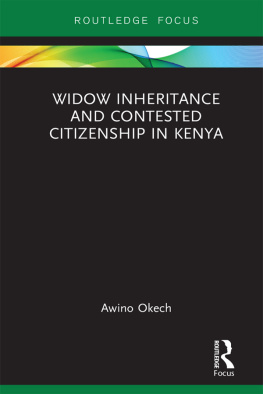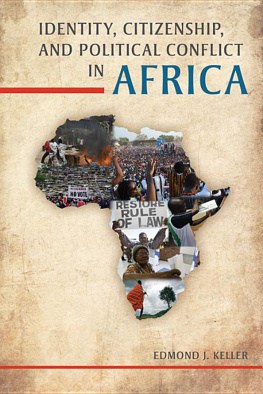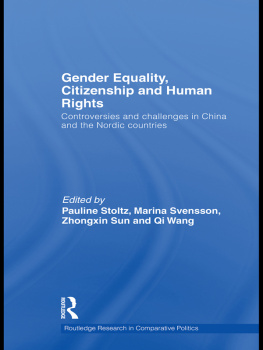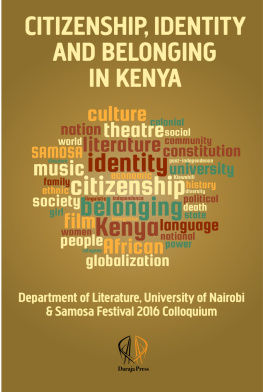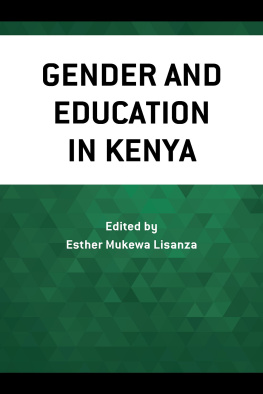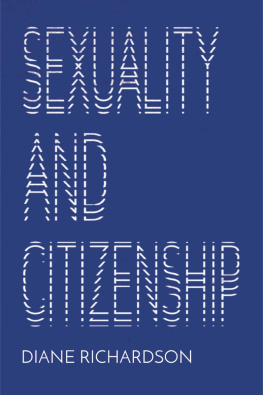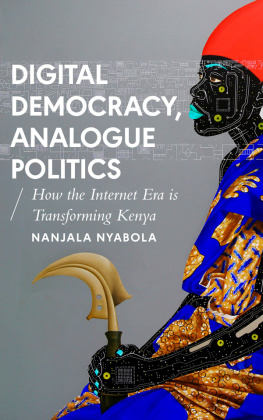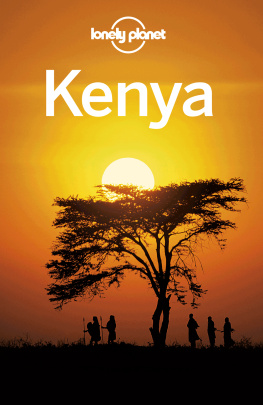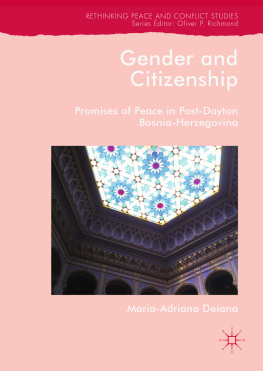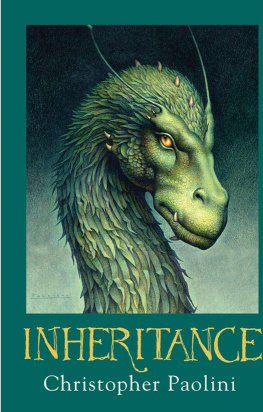Widow Inheritance and Contested Citizenship in Kenya
This book examines the practice of widow inheritance in order to explore the intersection between power, gender and sexualities in Kenya.
Using widow inheritance amongst the Luo of Kenya as a case study, the book explores the role of body politics in the construction of gendered subjects and nations. Widow Inheritance and Contested Citizenship in Kenya unpacks how respectable femininities and wayward sexualities become the sites within which national and state politics are ritualized and where tensions resulting from non-hegemonic performances of both gender and sexuality are resolved. The empirical research that underpins this book is qualitative and grounded in feminist methodology, challenging the erasure of womens narratives in hegemonic epistemologies.
Widow Inheritance and Contested Citizenship in Kenya will be of interest to students and scholars of African gender studies and womens rights.
Awino Okech is a lecturer at the Centre for Gender Studies, School of Oriental and African Studies, London and a Senior Research Associate with the African Leadership Centre, Kings College London.
Routledge Studies on Gender and Sexuality in Africa
The Tunisian Womens Rights Movement
From Nascent Activism to Influential Power-broking
Jane D. Tchaicha and Khdija Arfaoui
Disability and Sexuality in Zimbabwe
Voices from the Periphery
Christine Peta
Love, Sex and Teenage Sexual Cultures in South Africa
16 Turning 17
Deevia Bhana
African Women, ICT and Neoliberal Politics
The Challenge of Gendered Digital Divides to People-Centered Governance
Assata Zerai
Widow Inheritance and Contested Citizenship in Kenya
Awino Okech
Widow Inheritance and Contested Citizenship in Kenya
Awino Okech
First published 2019
by Routledge
2 Park Square, Milton Park, Abingdon, Oxon OX14 4RN
and by Routledge
52 Vanderbilt Avenue, New York, NY 10017
Routledge is an imprint of the Taylor & Francis Group, an informa business
2019 Awino Okech
The right of Awino Okech to be identified as author of this work has been asserted by her in accordance with sections 77 and 78 of the Copyright, Designs and Patents Act 1988.
All rights reserved. No part of this book may be reprinted or reproduced or utilised in any form or by any electronic, mechanical, or other means, now known or hereafter invented, including photocopying and recording, or in any information storage or retrieval system, without permission in writing from the publishers.
Trademark notice: Product or corporate names may be trademarks or registered trademarks, and are used only for identification and explanation without intent to infringe.
British Library Cataloguing-in-Publication Data
A catalogue record for this book is available from the British Library
Library of Congress Cataloging-in-Publication Data
A catalog record for this book has been requested
ISBN: 978-0-367-07767-9 (hbk)
ISBN: 978-0-429-02271-5 (ebk)
Typeset in Times New Roman
by Apex CoVantage, LLC
For Mama
Contents
The research that informs this book was made possible by the Steve Biko Leadership Fellowship between 20082009.
I would like to thank the research participants whose discussions generated the data for and in this dissertation, the women and men who entertained my prying questions and opened their homes to me; this book is a product of your reflections.
I am indebted to my supervisor Professor Jane Bennett who supported the development of this work when I was a PhD researcher.
To Funmi Olonisakin for working with me through many writing blocks. To my family for their support during my PhD journey.
Finally, to and for my mother Dolphine Achieng, who sparked my interest in this topic. Even though you are no longer here, I hope that this research contributes in some measure to the work you began.
I am neither a widow, nor from a developing country. My husband has not recently died from AIDS, nor do I face the prospect of being inherited by one of my husbands relatives, typically a brother. What property I do own will not be grabbed or seized by my husbands family after his death, leaving me and my children, if they are not taken away from me, destitute.I will not be forced to have sex with one of my husbands relatives to cleanse me. I will not be blamed for my husbands death, accused of witchcraft or ostracised from my family or community as a result of the stigma attached to AIDS. With no male to depend on, it wont be necessaryfor me to resort to activities that are considered immoral by the society in which I live, such as commercial sex work or beer brewing and selling, and which could place me and others at risk of further infection
(Sleap, 2001: 2)
The excerpt above exemplifies dominant analysis on widow inheritance. Underlying these narratives is the construction of African womens sexualities and bodies around discourses on disease, harmful traditional practices or violence. In sum, even though they are desirous of freedom they are shaped by constraint. These generalisations while informed by the intention to seek womens rights including those associated with bodily autonomy and therefore sexual pleasure, often wish away the many ways in which women and gender specifically is negotiated across different contexts. Literature and activism on widow inheritance across Africa has often followed a pattern identified by McFadden (2003) with an emphasis of the lack of agency of women and thereby positioning cultural practices as only capable of being read within binaries: modernity/ urbanity/Christianity and tradition/rurality/civilisation.
This book contributes to a body of African feminist scholarship that takes seriously the intersection between power, gender and sexualities (see Bennett, 2003; Lewis, 2003, 2004; McFadden, 2003; Mupotsa & Mhishi, 2008; Pereira, 2005; Tamale, 2005). Sexuality serves as the analytical frame to examine how femininity and therefore masculinity become mobilised within broad and volatile debates on rights, power and national identity in Kenya. I explore the role of body politics in the construction of gendered subjects and nations through an analysis of discourses on widow inheritance amongst the Luo of Kenya. The inherent tension manifested in the preservation of cultural norms the framework within which the surveillance of womens sexuality occurs and ethnic identities becomes apparent. The discourses that emerge around the performance of good womanhood point to the nexus between power and pleasure as key to the emergence of respectable femininities and wayward sexualities, as routes used by women to subvert the control of their sexual and bodily autonomy. Consequently, debates about womens sexuality in general, reproduction and communities physical and metaphorical borders come into sharp focus. Respectable femininities and wayward sexualities become the sites from which national and state politics are ritualised and where tensions resulting from non-hegemonic performances of both gender and sexuality are resolved.
The analysis drawn from my empirical research points to the fact that normative descriptions of femininity and masculinity are contested and subverted within expected widow inheritance rites. Women who have been predominantly construed as oppressed find ways to work within the cultural constraints imposed upon them to secure the right to housing, ownership of property and sexual agency read here as the right to choose a sexual partner or not, the choice to have children and the choice to not be de-sexualised because they refuse to acquiesce to cultural norms. Power relations are constantly negotiated, shifting and changing through everyday acts of bodily resistance. The analysis in this book is not intended to offer a collective description of widow inheritance. Instead, I explore how descriptions of diverse experiences of widow inheritance give rise to discourses on gender, sexuality, power and identity. It is the discourses produced during the narration of experiences rather than the experiences themselves that my research analysed.

